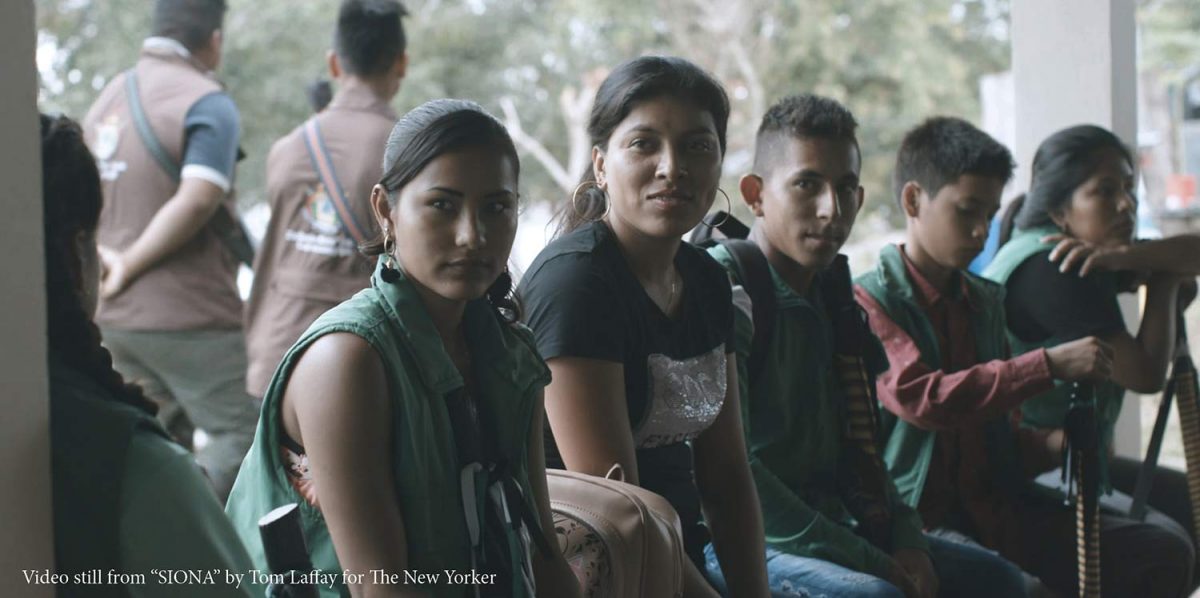






Washington, D.C., Quito and Bogota, July 9, 2020.- Colombia has yet to comply with the precautionary measures issued two years ago by the Inter-American Commission on Human Rights (IACHR) on behalf of the Siona People of the Resguardos Gonzaya (Buenavista) and PoPiyuya (Santa Cruz de Piñuña Blanco). The government’s failure to adopt the proposed measures in a culturally appropriated and concerted manner, combined with the global health emergency caused by the novel coronavirus (COVID-19), has increased the Siona peoples’ risk of physical and cultural extinction.
These concerns were presented to the IACHR in a meeting today by the traditional and political authorities from Siona communities, along with their representatives: Amazon Frontlines, the Center for Justice and International Law (CEJIL), the Lawyers Collective José Alvear Restrepo (CAJAR) and the Consultancy for Human Rights and Displacement (CODHES). Together they urged the Colombian government to stop using the pandemic as an excuse for inaction, and called on the government to advance the measures proposed by the IACHR to prevent violent interference by armed groups in Siona Territory.
“The pandemic has been the perfect excuse for the State to do nothing. There hasn’t been any progress towards complying with the precautionary measures. We hope that the IACHR, when it can, will conduct a verification visit in territory and release a follow-up resolution on the measures,” said Mario Erazo Yaiguaje, leader on territory of the Siona of Buenavista.
As the majority of Colombia’s population complied with the national government’s mandatory order to isolate in response to the pandemic, the lack of State presence in Siona Territory led to an increased presence of illegal armed actors in the region, making the communities more vulnerable. These armed groups aim to enforce social and territorial control over the Siona communities; their tactics include the forced recruitment of boys, girls and teenagers in the Indigenous Reserves and threats against the communities and their leaders. They also forcibly displaced a Siona family and threatened the displacement of others.
The delay in effective response from government institutions was further highlighted on June 17th, when a Siona girl was raped in the Buenavista reserve. Despite the fact that the Indigenous Guard was able to apprehend the non-indigenous attacker, the State took over three days to collect the detainee for prosecution. Due to pressure from illegal armed groups, the risk of impunity in this case and the lack of safeguards for the young victim—not to mention the ongoing threat of the COVID-19 pandemic—the community faces psychological damage. The inefficiency of existing justice mechanisms once again victimizes the community.
Moreover, the COVID-19 pandemic within the communities has received limited response. To date, a small supply of food aid is the only government assistance the community has received. This is insufficient, given that there haven’t been any risk-containment efforts nor a suitable response with culturally relevant information distributed in appropriate languages through suitable channels. As was publicly stated, the illegal armed groups who are trying to control territory in the Putumayo Department have threatened to kill those who show symptoms of infection during the pandemic. No protective equipment has been delivered to the community, not even to the Indigenous Guard, who typically are responsible for managing the COVID response effort.
“The last attempt at a meeting took place on December 17, 2019 in Puerto Asís. After that, the Chancellery and Ministry of the Interior pretended to conduct bilateral meetings between beneficiaries and entities in Bogotá in February,” said Lina María Espinosa, a lawyer for Amazon Frontlines. “They excluded the petitioners and disregarded governance mechanisms and proper participation of the beneficiaries. The State response has been disjointed, belated and without regard for ethnic customs; it constitutes a generic institutional offer that doesn’t take into account the danger and gravity of the situation. The State should recognize that it has increased the risk for the Siona people. Their absence from the territory has put the Siona people close to the brink of extinction. Once again, we emphasize the urgent importance of precautionary measures.”
At the end of today’s meeting, Siona representatives and advocates asked the IACHR to release a resolution to comply with the Precautionary Measures pursuant to resolution 02-2020, which include an on-site visit when it’s safe to do so. They urged the Colombian State to immediately and concertedly comply with the ordered measures in accordance with the community’s traditional customs. In particular, the State must urgently intervene to stop the forced recruitment of Siona adolescents, forced displacements, and threats against leaders and community authorities. In the face of COVID-19, the Colombian State should implement biosecurity measures and humanitarian assistance to guarantee the integrity, security and survival of the Siona community, especially the delivery of material and equipment to the Indigenous Guard.
Help us continue this critical and urgent work with a donation!
DONATE NOW